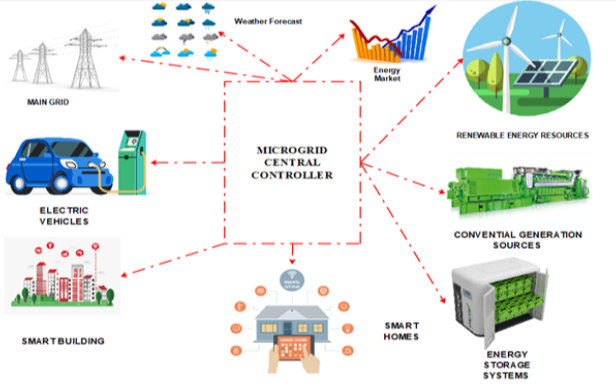Introduction to Grid Intelligence
Grid intelligence is at the forefront of the ongoing energy revolution, reshaping how electricity networks operate to meet the evolving demands of the 21st century. By adopting utilities analytics systems, power grids are becoming more efficient, smarter, and more resilient. These advancements allow grid operators to make informed decisions, anticipate challenges, and proactively adjust to changing conditions, ensuring uninterrupted power delivery even during peak demand periods or unexpected disruptions.
This intelligent system relies on rapidly processing and interpreting a vast array of data points collected from across the grid. Using advanced algorithms and machine learning techniques, grid intelligence can identify patterns and predict future consumption trends, enabling operators to allocate resources more precisely. This level of foresight and adaptability is particularly crucial in the face of climate change, economic shifts, and technological advancements, which all influence energy usage patterns in significant ways.
Key Benefits and Features
Implementing grid intelligence brings substantial benefits across the energy sector, fundamentally shifting how energy is distributed and consumed. From an operational perspective, it enhances system reliability by enabling more precise load forecasting and distribution management, which reduce the likelihood of outages and improve service continuity. This proactive stance helps utilities maintain consumer trust and satisfaction.
Economically, grid intelligence translates into substantial cost savings for providers and consumers. By mitigating energy waste and optimizing production schedules, these systems reduce unnecessary power generation and storage expenditures, resulting in lower operational costs. Furthermore, integrating renewables with existing grids effortlessly means that utility companies can diversify energy sources, stabilizing costs and reducing the environmental footprint associated with fossil fuel consumption. This synergy between traditional and renewable energies is pivotal in achieving global sustainability goals.
Technology Behind Intelligent Grids
The backbone of grid intelligence lies in a sophisticated suite of technologies, each contributing to the overall efficiency and reliability of the system. Artificial intelligence (AI), machine learning, and the Internet of Things (IoT) are central to this. AI and machine learning allow for continuously analyzing and synthesizing energy data, identifying trends and anomalies that human operators might miss.
An informative insight from the Forbes Technology Council highlights how these technologies enable grids to function autonomously, adjusting operations to optimize energy flows instantaneously. Additionally, IoT devices scattered throughout the grid provide real-time data, tying together various elements of the energy network, from generation plants down to individual household meters. This interconnectedness empowers utilities to react swiftly to disruptions, ensuring a smooth and consistent energy supply.
Renewable Energy Synergy
One of the standout advantages of grid intelligence is its facilitation of renewable energy integration. As nations worldwide ramp up efforts to combat climate change, the demand for reliable renewable energy solutions has never been more pressing. Despite their inherent variability, grid intelligence offers a robust platform to incorporate these sources. By dynamically managing the inputs from sources like solar and wind, these systems ensure a steady and reliable flow of clean energy to consumers.
According to a detailed analysis by the BBC, the increasing synergy between grid intelligence and renewable energy is pivotal for transitioning away from fossil fuels and expanding the reach and efficiency of sustainable energy solutions globally. This integration reduces carbon footprints and points the way towards an energy-secure future, aligning closely with both environmental and economic objectives on a national and international scale.
Consumer Empowerment
Grid intelligence significantly enhances consumer empowerment, transforming passive energy users into active participants in their energy consumption journeys. Through technologies such as smart meters and home energy management apps, individuals gain unprecedented visibility into how and when they use energy, allowing them to make informed decisions about reducing usage during peak periods or even generating their power through solar panels.
This transparency facilitates energy-saving practices, reducing household energy bills and contributing to overall energy efficiency efforts. Moreover, as more consumers adopt such technologies, there is a gradual shift towards more sustainable consumption habits, further driving the collective toward a lower-carbon footprint society. Consumer empowerment is not just about financial savings; it’s about fostering a more responsible, informed, and engaged consumer base that can influence broader energy policies through collective action.
Challenges and Opportunities
While the promise of grid intelligence is grand, the journey towards its widespread adoption is rife with challenges. The upfront costs associated with deploying advanced grid infrastructure can be significant, posing a barrier for many utilities and municipalities, particularly those with constrained budgets. There is also the critical issue of cybersecurity. Given the interconnectedness of intelligent grids, ensuring that these systems are protected against malicious attacks is paramount.
However, these challenges also provide valuable opportunities. By fostering innovation and collaboration across sectors—from government to private enterprise—the energy industry can overcome these obstacles, fostering more robust and secure systems. Investing in grid intelligence promises operational resilience and facilitates the emergence of new business models centered on energy efficiency and sustainability. With continued investment and strategic collaboration, the potential to drive substantial improvements in global energy management is immense.
The Path Forward
The future landscape of grid intelligence is bright and innovative, with the potential for significant advancements in technology and methodology. As machine learning models become increasingly sophisticated and data analytics deepen their insights, power systems worldwide will dramatically improve. The development of distributed energy resources and expanding prosumer markets—where consumers are also energy producers—represent a promising shift in traditional energy paradigms.
These changes will likely lead to more innovative energy sharing and distribution methods, encouraging community-based energy solutions and partnerships. Optimizing grid intelligence is also a path toward a more sustainable world, where energy is not only efficiently managed but also equitably distributed. As nations and organizations worldwide invest in the future of intelligent grids, the promise of a cleaner, more efficient energy future becomes increasingly attainable, driving global progress in energy innovation and sustainability.
